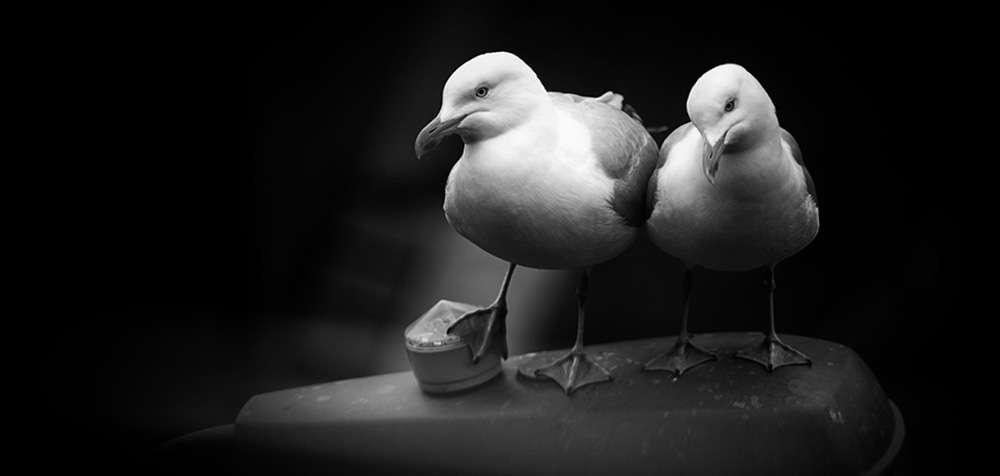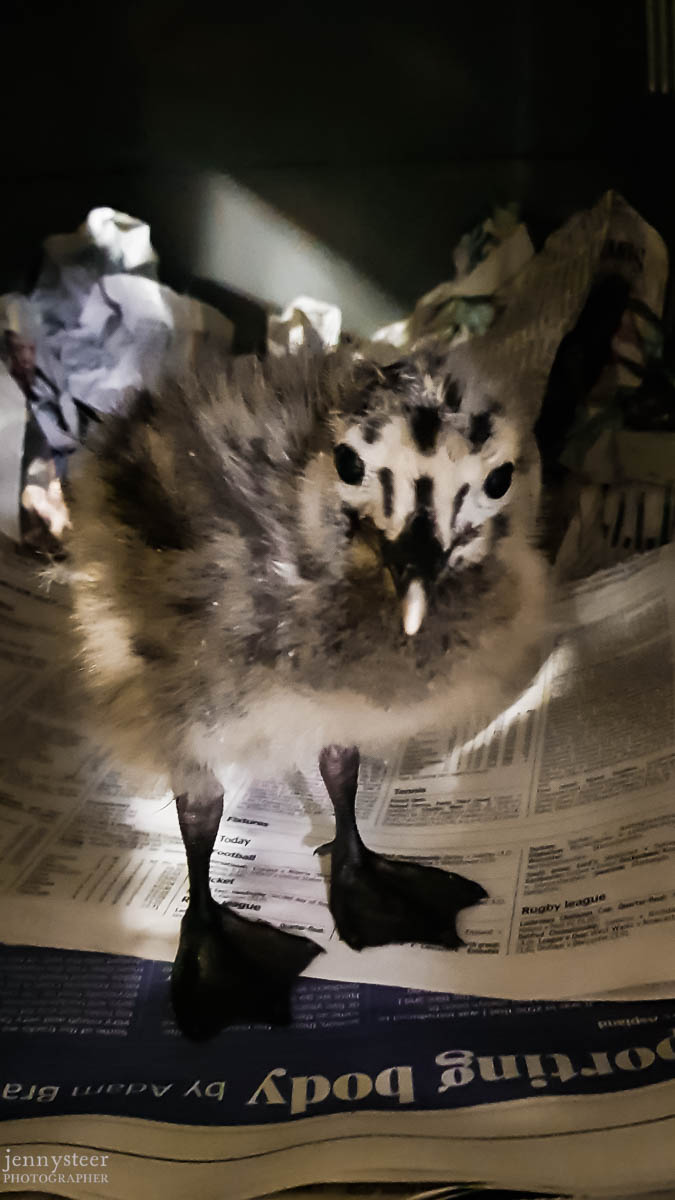There is a really good piece of advise from East Sussex Wildlife Rescue and Ambulance service about what to do if you find a baby gull.
Five Stages of the Gulls Nesting Season
The gull nesting season is divided into five overlapping periods as follows.
1. Nest building / laying of eggs
This is the initial period, which starts around late May, but where nest are destroyed by weather conditions or by man, gulls may try again. During this period calls are received from people who do not want gulls nesting on their roof or under licence need urgent work undertaking on their roof. Gulls are protected like all birds are during nesting. Their nests cannot be disturbed unless using a general licence from Natural England. Dive Bombing and noisy gulls are NOT a suitable reason for using a general licence. For further advice on using general licences you need to contact Natural England (part of the Department for Environment, Food and Rural Affairs).
2. Baby Seagull chicks / fluffy chicks
As soon as chicks appear on roofs we start getting calls where the chicks have fallen off the roof. These should be replaced using the directions set out below. Very small chicks up to 3 days old do need the warmth of their parents at night and will need access to the nest. After strong winds numerous calls are received about chicks falling off roofs. Placing chicks older than 3 days on a garage, extension or even back on to the main house roof is the best thing to do. The parent will continue to look after them and feed them. Chicks older than 3 days do not need to go back to their nest. Ensuring fresh water is available to drink is very beneficial for all wildlife in these situations.
It is common for gulls to be calling to their parents, whining and whimpering, this is normal and not a sign of distress. All young gulls do this even up on top of the roofs, this is them just asking for attention and food. It is nothing to worry about. As a general rule most wildlife avoids making noise when injured to avoid attracting predators.
3. Nestlings (Partially feathered / Fluff)
As the feathers appear they start to follow their parents and attempt to fly. Even more calls are received about young gulls falling off roofs. Again, where possible these should be placed on a roof close to their original roof to get them off the ground, as described above. Care needs to be taken not to place them on the wrong roof or close to neighbouring nesting gulls.
4. Fledglings (Fully feathered and developed)
Fledgling can be identified as those whose wing tips overlap just above the base of the tail. Ideally there should be at least a 1cm overlap. As with all fledgling birds they are unsuccessful when they take their first flight and land in gardens. They need to spend time building up the muscle strength in their wings before they can fly. Fledglings should be left alone even if on the ground unless injured, in a dangerous location like a busy road or in a confined space (6ft x 6ft or very high walls i.e. more than 12ft high but depends on size of the confined space).
Where fledgling gulls have jumped off a roof and into a road please move them into the garden of the house where they came from to keep them safe. You can try to get them off the ground again, but they may well jump straight off again.
During this time the parents often withhold food in an attempt to encourage the gulls to fly up to them, this is normal.
Providing fresh water is useful, but be careful providing food as this can cause other adults to fly down and attack the youngster.
Fledglings of all species are at risk of being taken by predators. They are part of the food chain so rescue centre don’t normally take in fledglings just because their are predators around. Facilities sadly do not exist to take in the millions of fledglings which would need taking into care if they were to do this. Although it is not nice to witness one wild animal or bird taking another, it is natural, and should not be interfered with. Predators cannot be expected to be vegetarian. In the same way gulls should not be stopped from catching fish or Tawny Owls from taking mice.
5. Gull flying accidents
The final stage is when the fledglings are flying and getting used to their wings. This results in a variety of calls for dog attacked gulls, road casualties and window strikes, found with a whole variety of injuries.
Is the young gull being fed?
Adult gulls do not feed their young as often as garden birds would feed their young. A blue tit may feed as often as every 5 minutes or more. Gulls feed 3-6 times a day – mainly in the early morning, late afternoon and evening depending on the temperature as adult gulls do not like flying during really hot weather. Frequently people believe that chicks and youngsters are not being fed, as they have not seen the parents come down to a young bird all day. However, very few people will actually sit and watch continuously from 4am through till 10pm to determine whether the parents are bringing down food. If the parents are on the roof above and a youngster is on a lower roof, they will normally be coming down to feed still. Gull parents do not abandon their young very easily.
Feeding young Seagulls
Many people ask if they should start feeding young gulls placed back onto low roofs or those fallen into gardens. Feeding can frequently lead to the youngster being attacked by other adult gulls who want the food too. Other adult gulls can get aggressive towards youngsters which are not theirs. Feeding is not necessary, as the parent birds will feed them. If they are abandoned then they will need to be taken in for hand rearing.
Replacing a youngster back on a roof
Where a baby or young seagull falls off a roof and is unable to return to its parents on its own, it should be placed back onto the roof if:
- it is clear which nest and roof it has come from
- the bird has no obvious injures
… Or be placed onto a flat extension roof, another shallow low roof or garage roof as along as:
- the roof is close enough for the parents to easily find their young
- the roof is not encroaching on other gulls rearing their young
- the baby gull is not too young and not going to be too exposed
Rehabilitation Facilities
Every year thousands of gulls fall off roof tops across the Southeast of England, and it is impossible for them all to come into care as the money and resources does not exist to do so. Rescue organisations do as much as they can within their budgets and balancing it against the rest of the work they have to undertake. However, every year the facilities become full and a limit is reached. Please do not take offence if you are asked to try and get the bird off the ground or take it somewhere as East Sussex WRAS along with all the organisations are only small and have a limited number of volunteers and resources and cannot help everyone as there just aren’t enough hours in the day.
Gulls




.jpg)